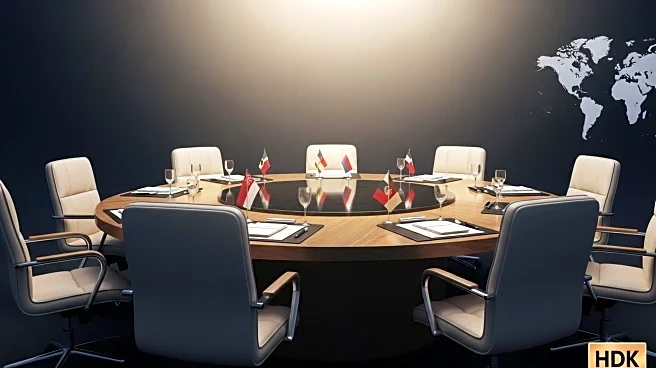What's Happening?
President Trump is scheduled to meet with officials from Muslim-majority countries to discuss the ongoing situation in Gaza. This meeting comes amid heightened tensions in the region, with two hospitals in Gaza forced to cease operations due to escalating Israeli offensives, according to the health ministry. The discussions are expected to focus on the humanitarian impact and potential diplomatic solutions to the conflict. Additionally, world leaders have rallied behind Palestinian statehood at the United Nations, challenging the positions of both the United States and Israel.
Why It's Important?
The meeting between President Trump and officials from Muslim-majority countries is significant as it highlights the U.S.'s involvement in Middle Eastern geopolitics, particularly concerning the Israeli-Palestinian conflict. The humanitarian crisis in Gaza, exacerbated by hospital closures, underscores the urgent need for diplomatic intervention. The international support for Palestinian statehood at the UN indicates a shift in global sentiment, potentially influencing U.S. foreign policy and its alliances in the region. The outcome of these discussions could impact future peace negotiations and the stability of the Middle East.
What's Next?
Following the meeting, potential diplomatic initiatives or statements may be announced, aiming to address the humanitarian needs in Gaza and explore pathways to peace. The U.S. may face pressure to reconsider its stance on Palestinian statehood, given the international support at the UN. Reactions from Israel and Palestinian authorities will be crucial in determining the next steps in the conflict resolution process. Additionally, the broader geopolitical implications could affect U.S. relations with Muslim-majority countries and its strategic interests in the Middle East.
Beyond the Headlines
The situation in Gaza and the international response highlight the complex interplay of humanitarian, political, and cultural factors in the Israeli-Palestinian conflict. The eviction of Bedouin communities near Jerusalem due to expanding Israeli settlements adds another layer of tension, raising ethical and legal questions about land rights and displacement. The broader implications of these developments may influence long-term regional dynamics and the pursuit of justice and equity in conflict zones.









